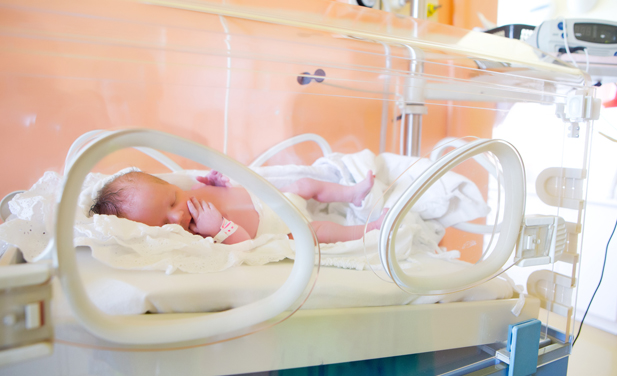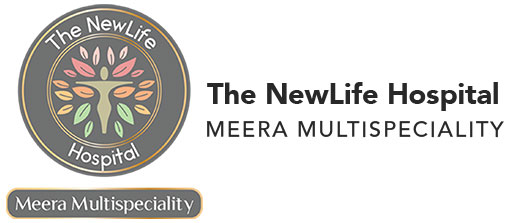
When a newborn baby comes into a family, the feeling of it is marvellous. Having a healthy baby is a dream of every parent, but there are times when the newborn baby faces some medical complications. One such complication is premature birth. Premature birth is quite common and parents should not panic in case of this. In this blog, we will explain all about premature birth and everything you need to know about how to take care of it.
- What is premature birth?
Premature birth is a birth of a child that takes place before the estimated due date or birth that takes place more than three weeks before it. In simple words, the baby is born before the beginning of the 37th week of pregnancy. Due to early birth, babies have to face various medical complications and they vary depending upon the time and the overall health of the baby.
The earlier your baby is born, the higher the risk of complications. Premature babies require special care and are usually admitted to Neonatal Intensive Care units in hospitals where they are kept in incubators and fed via tubes.
- What does a premature baby look like?
The average weight of a baby born after full term is around 3 kg, whereas premature babies are likely to be somewhere around 2.6 kg. Preemies born after completion of the 30th week have better chances of being more developed and facing fewer complications. The earlier they are born before 37 weeks, the smaller they are likely to be. Due to lesser skin and fat, they might look weaker. The skin may be more transparent and you might in some cases be able to look at the blood vessels.
The layer of the skin is very sensitive and thin so they might feel cold even at room temperature due to underdeveloped organs. This is why some also turn blue due to an imbalance in body temperature.
Depending upon how they are born the baby may be-
- Lately preterm– born between 34 and 36 weeks
- moderately preterm- born between 32 and 34 weeks
- very preterm- born at less than 32 weeks
- extremely preterm- born before completion of 25 weeks of pregnancy
- Baby care in the neonatal Intensive Care Unit or NICU

Babies require around 40 weeks to develop completely. NICUs are equipped with temperature control, lying incubators, respiratory and resuscitating equipment that are required to take care of the babies. It is likely to be the home during the first few weeks of treatment. The first few days are focused on providing support to the vital organs and helping them mature completely. Constant monitoring and administration are carried out to check the baby’s blood pressure, heart rate, blood oxygen level, and breathing; breastfeeding is not possible during this period so they are fed via tubes.
Contact with parents is only allowed if the baby is strong and safe. Babies are discharged from the unit-
- if they can maintain the body temperature for a continuous span of 24 to 48 hours without the support of incubators or any other equipment
- If they can feed without external help, this means that they are strong enough for breastfeeding and usage of bottles
- if they are gaining weight at a steady pace
- A premature baby needs after NICU discharge
- Premature infants need to be inclined at an angle of 30° while breastfeeding and avoid moving them while doing so. This reclined position helps them to breathe steadily and experience a sense of balance.
- Maximize skin contact with your preemie to increase efficiency in milk production, opt for small feeding because this will help in the prevention of any breathing problem while providing nutrition.
- They need supplemental Oxygen and certain medications after discharge to avoid the development of a chronic lung condition called bronchopulmonary dysplasia.
- Parents need to stick to the schedule provided by the hospital for immunization and prevention of infections.
- Make sure to surround your baby with a clean and safe environment and minimize the exposure to people who are sick
- Give importance to hygiene
- Things you need to know to care for a premature baby
- If you are a new parent and are confused about the process of breastfeeding, make sure to ask your pediatrician, gynecologist or nurse to teach you how to support your baby while doing so and about any ‘don’ts’ that you need to keep in mind while breastfeeding
- If you feel that they are not feeding properly, choking, facing difficulties in breathing, or coughing out too much even after a short period of feeding, make sure to consult a doctor immediately without any further delay.
- A preterm baby has to face quite some complications, so it is important to provide them with the best Intensive Care. A pediatrician ensures the safety and good health of the baby and also gives guidance to parents on how to take care of them. Do not hesitate in consulting your doctors for any queries regarding feeding, supplementation, nutrition, and immunization.
- Home care for a premature baby
- Premature care is not an easy task, so it is important that you and your partner try your best and also take professional help like hiring a nanny or nurse.
- Do not expose them to unknown people until they are 6 to 12 months old because they are sensitive to unhygienic environments
- Invest in premium-quality equipment such as a thermometer and humidifiers.
- Create a safe environment for your baby with a mattress that is firm.
The New Life Hospital Meera Multispeciality specializes in Maternity care; they provide world-class amenities for the comfort and safety of their clients and have been trusted by many for a long time. The team involves pediatricians, doctors, surgeons, and nurses who have worked in the field for many years and have expertise in the same.
